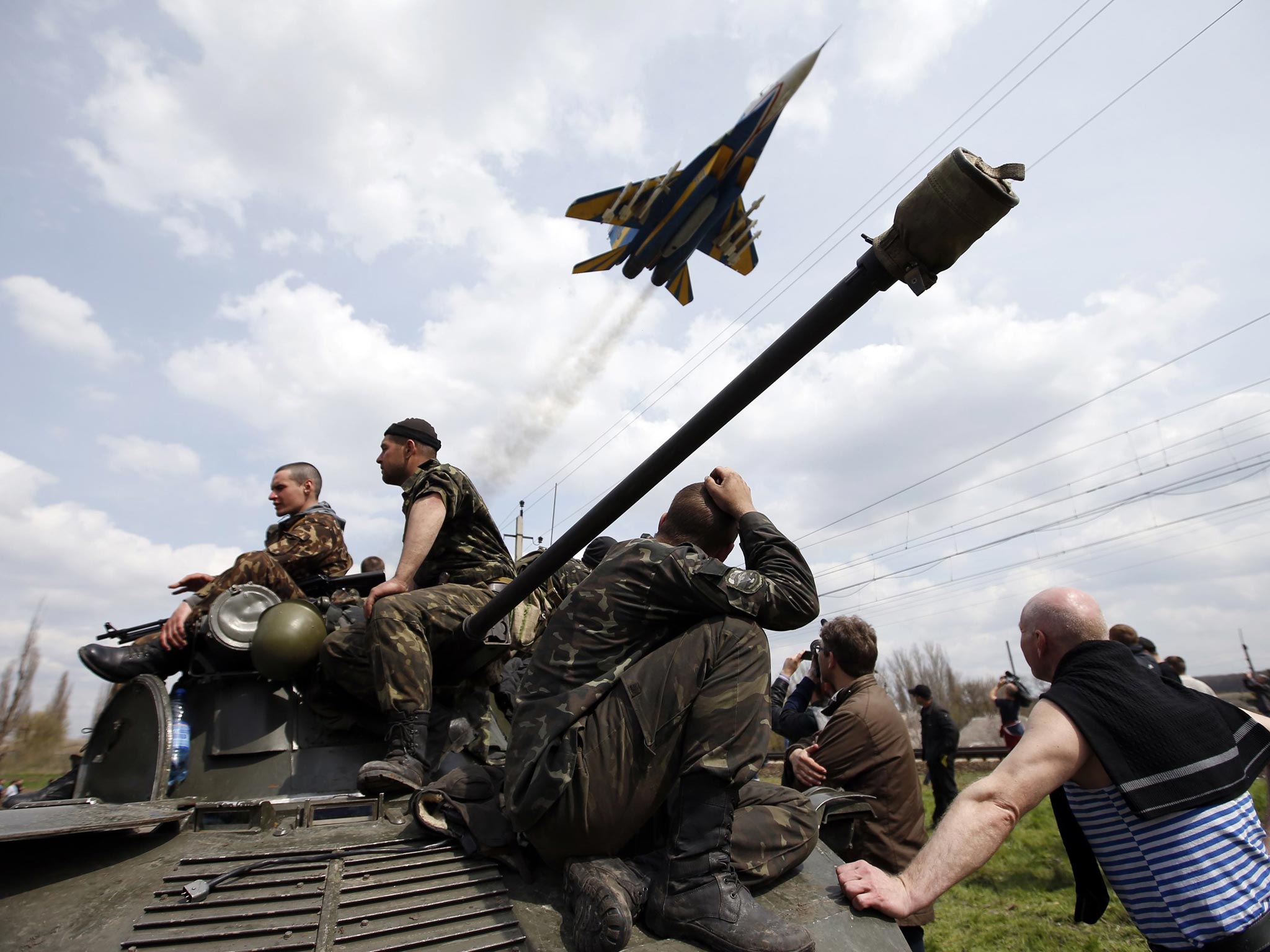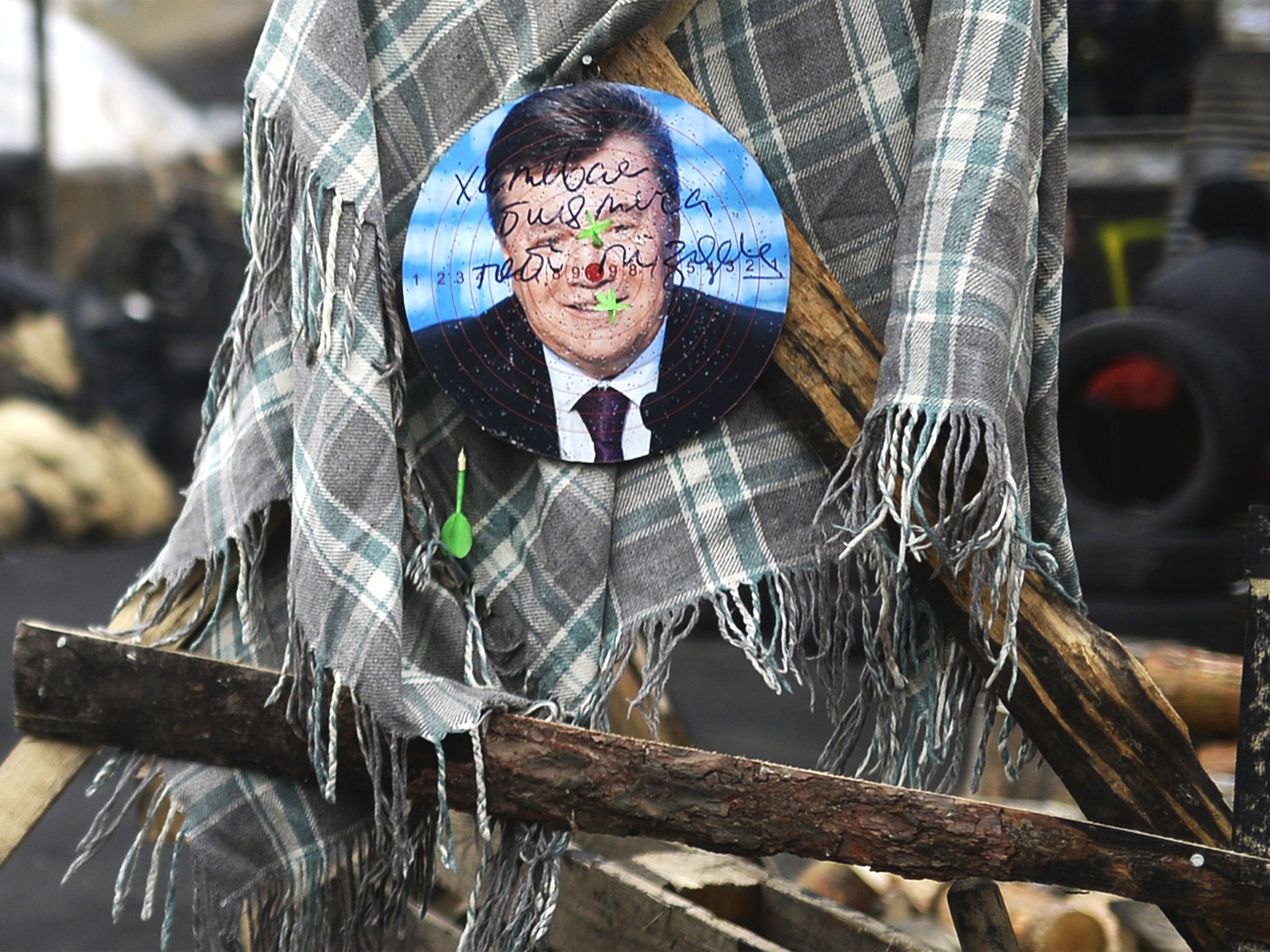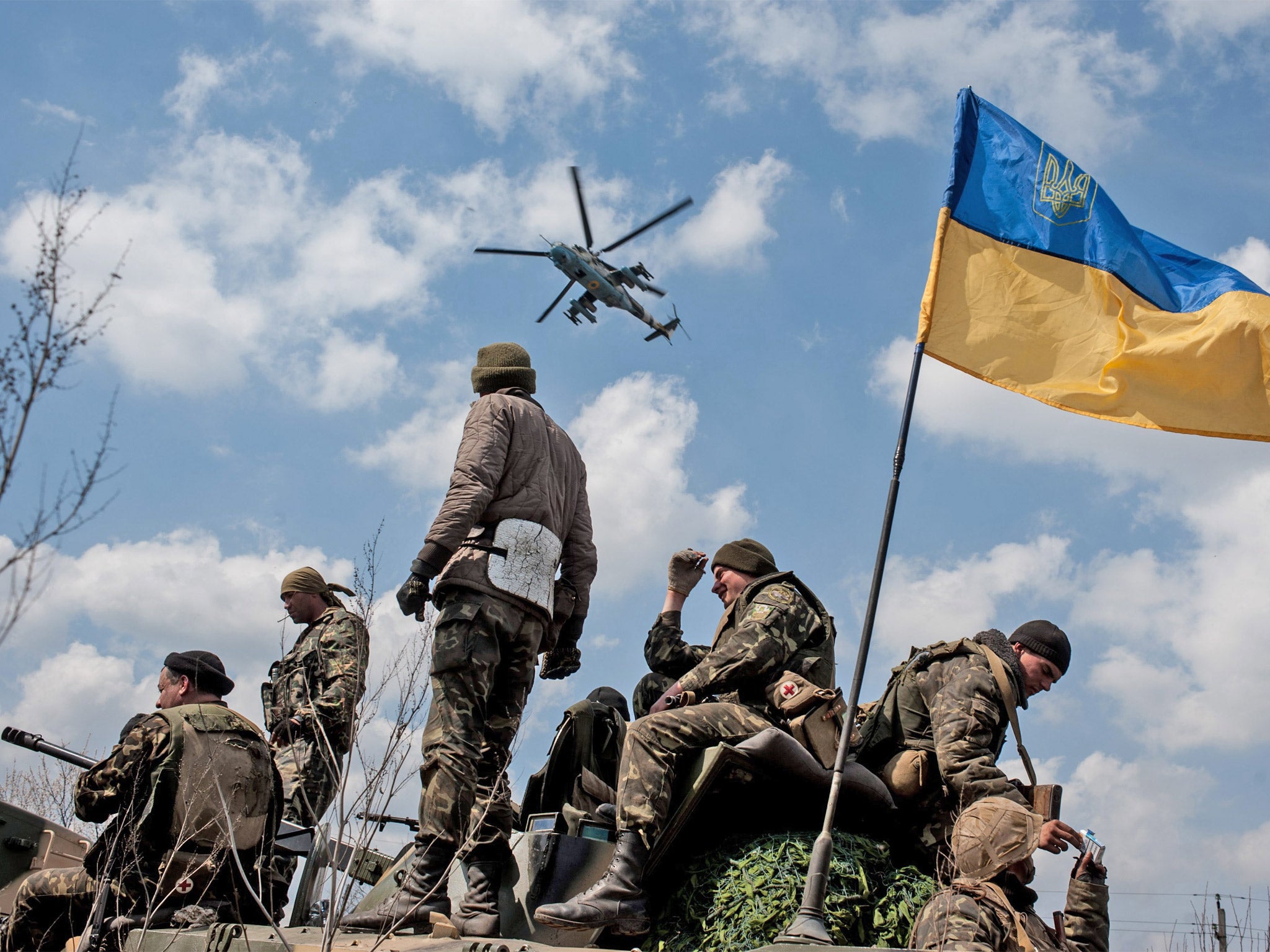Ukraine crisis latest: Donetsk unmoved by Geneva accord
For the men facing off at the airport, the multinational peace deal is meaningless

Your support helps us to tell the story
From reproductive rights to climate change to Big Tech, The Independent is on the ground when the story is developing. Whether it's investigating the financials of Elon Musk's pro-Trump PAC or producing our latest documentary, 'The A Word', which shines a light on the American women fighting for reproductive rights, we know how important it is to parse out the facts from the messaging.
At such a critical moment in US history, we need reporters on the ground. Your donation allows us to keep sending journalists to speak to both sides of the story.
The Independent is trusted by Americans across the entire political spectrum. And unlike many other quality news outlets, we choose not to lock Americans out of our reporting and analysis with paywalls. We believe quality journalism should be available to everyone, paid for by those who can afford it.
Your support makes all the difference.Dmitry Victorovich Podushkin waved a piece of paper: “This is what the OSCE [the Organisation for Security and Co-operation in Europe] gave me; this is supposed to stop the bandits, terrorists, from doing their criminal acts, blocking roads, harassing. You can see it has no effect at all.”
That, indeed, seemed to be the case. Two men stood three feet away, haranguing him. “You are a thief. You stole this place with your corrupt friends. Now you are helping the invaders”. Behind the object of their scorn, the director of Kramatorsk airport, stood half a dozen Ukrainian soldiers, their faces covered by scarves, nervously fingering their assault rifles.
“They are my protection. I am not depending on the OSCE for anything. What I worry about is what happens if these soldiers leave. I have to stay here; my family stays here.” Mr Podushkin spread his hands. “They can have all kinds of international organisations saying all kinds of things, but what matters is that nothing is changing here. It’s a bad situation.”
The standoff at the Kramatorsk airport was replicated across the east of the country a day after an agreement was struck between world powers in Geneva that was supposed to defuse the tension.
On this occasion it was the troops of the Kiev government which found themselves surrounded. In 13 other towns and cities it is the separatists who are behind the barricades, occupying an array of state institutions.
Nothing will change, if Denis Pushilin, the leader of the separatist “Peoples Republic of Donetsk”, has his way. He dismissed the deal brokered in Switzerland yesterday between Russia, the US, the EU and Ukraine. “Sergei Lavrov [the Russian Foreign Minister] did not sign anything for us, he signed on behalf of the Russian Federation. Here, we will persevere until the end,” Mr Pushilin said. Under the Geneva accord, the armed groups occupying the buildings must disarm and depart; there will be a general amnesty; and a national dialogue will take place on a new constitution, with the offer of devolution of powers to the regions.
Mr Pushilin was speaking at his 11th floor office in the administrative building in Donetsk which had been taken over by the separatists and is now guarded by masked men with Kalashnikovs, cement bags, razor wire and rubble.
The “chairman of the presidium” made a counter-offer: “As far as the vacating of buildings and areas is concerned, surely everyone must leave them, including Arseny Yatsenuik [the acting Prime Minister in Kiev ] and Oleksander Turchinov [the acting President]. They also took over buildings illegally. We are ready to do it after them.”

Mr Pushilin, flanked by advisers in balaclavas, said the “Peoples’ Republic” intended to forge ahead with its own programme – a referendum with the choice of autonomy in a federal Ukraine, independence, or joining Russia. “The date for it is not changing, no later than 11 May,” he said. “We are expecting nothing from Kiev which will make us change our minds.”
Whether the east can expect more troops to arrive from Kiev remains to be seen. The contingent at Kramatorsk, divided between civil and military parts, were remnants of the airborne brigade which captured the airport with a helicopter assault on Sunday, and retreated back there after a “show of force” in the city went disastrously wrong. They lost seven armoured personnel carriers to the separatists.
The small number of soldiers standing in the sunshine yesterday in full combat kit said they were providing tactical support . “We don’t know whether we are going to stay on or go somewhere else. We don’t know what orders we will get next”, said one, cautiously peering at an equally small group of protesters manning a rope barrier 50 yards down the road. “But I think if we are going to stay, we need proper defences. This place is too open to attack.”
Amid the lines of attrition between the separatists and Ukrainian loyalists, local feuds, tensions and prejudices have come into play. In answer to the charge that he had “stolen” the airport, Mr Podushkin insisted that he had borrowed the money.
One of those manning the checkpoint later insisted on telling the “real story”. He said: “This man Podushkin bought this airport at a fraction of the price, and all the land around here. He was working with a senior police officer who also got a cut from all this. This is a strategic military facility, very sensitive; how can this go into private hands?

“That is what he’s afraid of; the Russians coming and investigating what went on.”
But were these anything more than rumours? “This is how I know,” said the man, producing his police ID card. “I am now in criminal investigations, murders, robberies; but I used to be in economic crimes branch, so I have some knowledge of these matters.”
This was not, of course, evidence of any guilt on the part of Mr Podushkin. The next statement, by the police captain’s companion, illustrated how social attitudes influence political choices. “This man is a baptised Protestant, so he feels he needs protection from Kiev.”
At nearby Slovyansk, which has become a stronghold for the separatists, Pavel, keeping guard at the captured main police station, tiredly shook his head. “We need to get the airport; not because the owner’s a Protestant or Orthodox, but because Kiev can use it to bring in men and weapons. No one thinks this thing in Geneva will lead to anything. We don’t think so and neither do they.”
Join our commenting forum
Join thought-provoking conversations, follow other Independent readers and see their replies
Comments